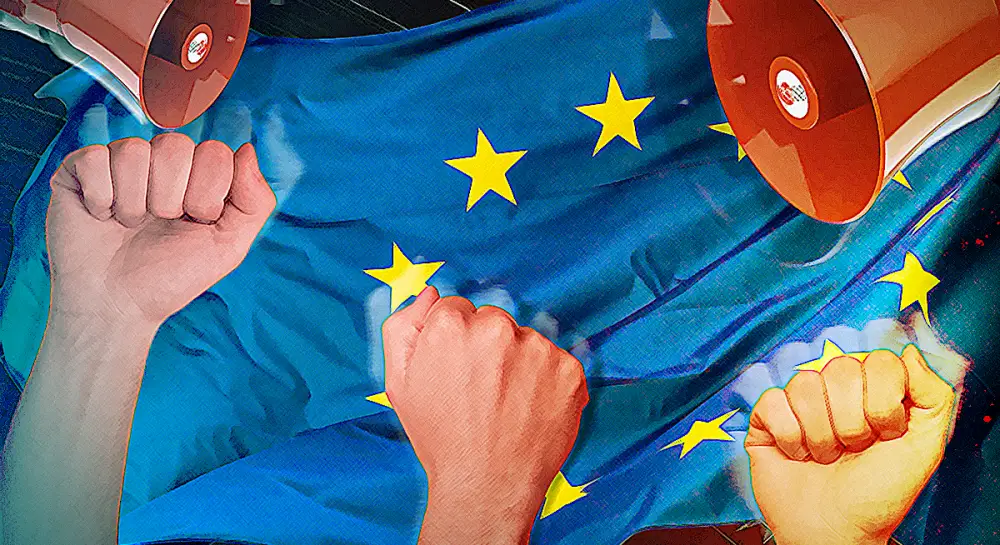Populism in Europe: New Challenges for Ukraine Amid War and Global Shifts

Will the Rise of Right-Wing Forces in Europe Lead to Ukraine's Military Defeat?
Populism is gaining increasing popularity in contemporary politics, and Europe is no exception. In recent years, this political movement has spread across multiple countries, reshaping the political landscape at both national and international levels. The electoral success of populist parties such as Italy’s "Five Star Movement," Germany’s "Alternative for Germany," and the UK’s UKIP has not only disrupted the stability of traditional political systems but also jeopardized relations with key allies, including Ukraine. Given Ukraine's reliance on Western support in its war with russia, these new political realities require special attention.
The Causes and Consequences of Populism's Rise in Europe
To understand why populism is gaining ground, it's essential to consider several key factors. Primarily, populism is a reaction to the socio-economic problems that Western societies have experienced over the past few decades. The economic crisis of 2008 was a turning point for many countries, dealing a severe blow to the middle class, which traditionally formed the core electoral base of democratic political systems. People accustomed to stability and growing prosperity found themselves facing uncertain economic prospects, leading to a loss of trust in traditional political elites and a search for alternatives in new political forces.
A notable example is the victory of the "Five Star Movement" in Italy’s 2018 parliamentary elections. Founded by comedian Beppe Grillo, this political force positioned itself as anti-establishment, criticizing traditional parties and the political establishment. Although its ideology was not well-defined, its anti-elite rhetoric targeted "old" elites who had failed to overcome the consequences of the financial crisis.
In Germany, similar sentiments led to the rise of the "Alternative for Germany" party, which began to gain significant support in local elections, particularly in the eastern regions. Similar processes occurred in the UK, where UKIP played a decisive role in the Brexit referendum. Populism thrives on simple solutions to complex problems, appealing to voters disillusioned with traditional politics.
Populism as a Threat to Ukraine
For Ukraine, the growing popularity of populist forces in Europe presents particular risks. Since the beginning of the full-scale war with russia, Ukraine has heavily relied on support from Western countries, especially the European Union and the United States. However, recent election campaigns have shown that many populists gaining power in European countries use anti-Ukrainian rhetoric in their agendas.
For instance, in Slovakia, Robert Fico, who became prime minister, campaigned against military aid to Ukraine. His rhetoric aimed at halting sanctions against russia could seriously undermine the unity of the European Union in countering russian aggression. Although Fico softened his tone after winning, his initial statements already influenced the political climate in Slovakia, creating additional threats to Ukraine.
Another risk for Ukraine is that populist leaders often find support from pro-russian elements or receive funding from the Kremlin. This further fuels their anti-establishment rhetoric and drives policies against Ukraine's interests.
russian Aggression as a Catalyst for Populism
One of the biggest challenges for Ukraine is that the war with russia is becoming a key factor in populist campaigns in Europe. The information war waged by the kremlin influences public opinion in Western countries, creating fertile ground for the growth of anti-Ukrainian sentiments. This is particularly evident amid new crises, such as the COVID-19 pandemic, which further eroded trust in traditional political elites.
Simultaneously, the use of social media and new media creates opportunities for spreading populist and disinformation campaigns. Platforms like YouTube, TikTok, and Facebook have become primary channels for disseminating simplified, often false, messages that resonate with broad segments of the population. This enables populists to quickly mobilize their supporters and influence political decisions.
Ukraine's Issue as an Electoral Campaign Factor
Ukraine has become one of the key issues in the electoral campaigns of many populist parties. This was noticeable during the 2024 elections in the Netherlands, where the far-right Party for Freedom, led by Geert Wilders, who previously opposed Ukraine’s association agreement, tried to avoid the topic of Ukraine during the campaign. Populist forces understand that openly anti-Ukrainian rhetoric could alienate some voters who support Ukraine, so they choose more cautious approaches.
A similar situation can be observed in France, where Marine Le Pen's far-right "National Rally," which previously received financial support from russia, avoided making harsh statements regarding Ukraine during the 2024 elections. This suggests that populists can be flexible in their rhetoric, depending on public sentiment.
Ukraine'sAre All Populists Equally Harmful to Ukraine?
While most populist parties pose a threat to Ukrainian interests, not all are openly hostile to Ukraine. For example, in Italy, Giorgia Meloni exceeded many experts' expectations after coming to power by supporting Ukraine in its struggle against russia. A similar case can be seen in the Netherlands, where the victory of far-right parties did not affect the country's foreign policy support for Ukraine.
How Can Ukraine Adapt to New Challenges?
As populist forces continue to gain popularity in Europe, Ukraine must develop strategies to maintain and strengthen the support of its allies. First, it is crucial to work on public opinion in European countries, explaining the importance of supporting Ukraine. This task becomes even more pressing in the context of the information war.
Secondly, Ukraine should develop relationships not only with governments but also with other political forces, including populists who could potentially be allies or at least not adversaries. The experiences of countries like Italy and the Netherlands show that public opinion pressure can compel even populists to support Ukraine.
Conclusion
Populism has become one of the main political trends in contemporary Europe, and its impact on Ukraine cannot be underestimated. While most populist parties employ anti-Ukrainian rhetoric, there are also instances where populists are forced to adjust their positions under public pressure. For Ukraine, this means that the fight for Western support is just beginning, and the country must use all available means to preserve this support in the face of new political realities.









